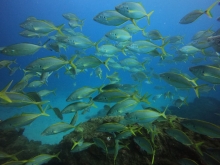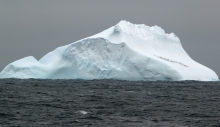Economic growth is often prescribed as a sure way of increasing the well-being of people in low-income countries, but a study led by McGill and the Institute of Environmental Sciences and Technologies at the Universitat Autònoma de Barcelona (ICTA-UAB) suggests that there may be good reason to question this assumption. The researchers set out to find out how people rate their subjective well-being in societies where money plays a minimal role, and which are not usually included in global happiness surveys.

The European Joint Programme on Rare Diseases (EJP RD) has granted 1.6 million euros in support of an international research collaboration specific to the ultra-rare genetic disease, Schinzel-Giedion Syndrome (SGS). The international team of researchers is coordinated by the Douglas Research Centre and McGill’s Associate Professor and Canada Research Chair in Psychiatric Genetics, Carl Ernst. The EJP RD is a joint program between major funding bodies from over 25 countries, including the CIHR and FRQS.

Researchers from McGill University have discovered, for the first time, one of the possible mechanisms that contributes to the ability of lysergic acid diethylamide (LSD) to increase social interaction. The findings, which could help unlock potential therapeutic applications in treating certain psychiatric diseases, including anxiety and alcohol use disorders, are published in the journal PNAS.

Bubbles of methane gas in water around an unplugged oil/gas well in Pennsylvania. CREDIT: Mary Kang

Artist’s interpretation of Labradormantis guilbaulti in liftoff among the leaves of a sycamore tree, Labrador, around 100 million years ago. The interpretation is based on fossils (for the wings) and living and extinct relatives (for the rest of the body). Fossilized sycamore leaves have been found in the same deposits as the mantis wings and show that this new insect species would have lived in a lush warm temperate forest during the Cretaceous. CREDIT: A. Demers-Potvin

Muscle structure and body size predict the athletic performance of Olympic athletes, such as sprinters. The same, it appears, is true of wild seabirds that can commute hundreds of kilometres a day to find food, according to a recent paper by scientists from McGill and Colgate universities published in the Journal of Experimental Biology.

Warming ocean waters could reduce the ability of fish, especially large ones, to extract the oxygen they need from their environment. Animals require oxygen to generate energy for movement, growth and reproduction.

To stop biodiversity loss, Canada recently committed to protecting 30% of its land and sea by 2030. But making conservation decisions about where to locate new protected areas is complicated. It depends on data both about biodiversity and about a range of benefits (e.g. freshwater, climate regulation, recreation) that people get from nature. Surprisingly, despite the size of the country, new mapping suggests that less than 1% of Canada’s land (0.6% of total area or approximately 56,000 km2) is a hotspot, providing all these benefits in one place.

Joint research program between the Japan Agency for Medical Research and Development and the Canadian Institutes of Health Research focuses on advancing technologies in epigenomics, deepening McGill’s relationship with Japan’s RIKEN institute.
By Junji Nishihata

To ensure that California’s groundwater is sustainably managed in the future and over the long-term, current state definitions of what constitutes groundwater may need to be revised, according to research published this week in PNAS. A McGill University-led research team has analyzed big data of more than 200,000 groundwater samples taken from across the state and found that there are problems with the guidelines used for groundwater management.

Large multi-site study accurately predicts damage to grey matter by disease
An international study has found a link between the brain’s network connections and grey matter atrophy caused by certain types of epilepsy, a major step forward in our understanding of the disease.

Over the past 40,000 years, ice sheets thousands of kilometres apart have influenced one another through sea level changes, according to research published today in Nature. New modelling of ice sheet changes during the most recent glacial cycle by a McGill-led team offers a clearer idea of the mechanisms that drive change than had previously existed and explains newly available geological records.

Vertebrate populations - from birds and fish to antelope - are not, in general, declining. Despite what has previously been thought and said.

Congratulations to Dr. Nada Jabado, Professor in the Department of Pediatrics and a researcher at the Research Institute of the McGill University Health Centre (RI-MUHC), who received the University of British Colombia's Dr. Chew Wei Memorial Prize in Cancer Research for her transformational work in treating childhood brain cancers.

Using a new technique, a team of McGill University researchers has found tiny and previously undetectable ‘hot spots’ of extremely high stiffness inside aggressive and invasive breast cancer tumours. Their findings suggest, for the first time, that only very tiny regions of a tumor need to stiffen for metastasis to take place. Though still in its infancy, the researchers believe that their technique may prove useful in detecting and mapping the progression of aggressive cancers.
